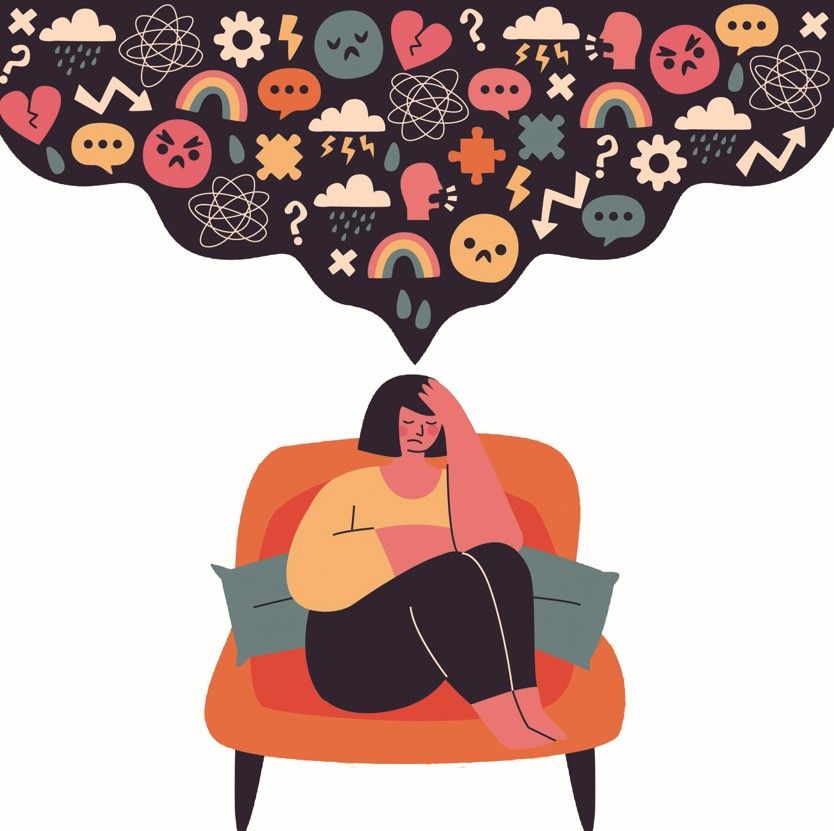Help break the mental health stigma
Eight ways to create a more supportive space for those with mental health conditions
By MB Lifestyle
Mental health stigma is a pervasive issue that affects individuals worldwide. It can prevent people from seeking the help they need and contribute to feelings of shame and isolation. According to the World Health Organization, nearly 450 million people currently suffer from mental health conditions, yet nearly two-thirds of people with a known mental disorder never seek help from a health professional due to stigma, discrimination, and neglect. As ordinary citizens, we have the power to help lessen this stigma and create a more understanding and supportive environment. Here are some actionable steps we can take:
Educate yourself
Understanding mental health conditions is the first step towards reducing stigma. Take the time to learn about various mental health disorders, their symptoms, and the treatments available. Education dispels myths and reduces fear and misconceptions. When you understand what mental health conditions are, you can approach the topic with more empathy and knowledge.
• Learn About Mental Health: Read books, watch documentaries, and visit reliable websites to gather accurate information.
• Understand the Signs: Recognize the common signs and symptoms of mental health issues to better support those around you.
Speak up
Don't stay silent when you hear stereotypes or stigmatizing language about mental health. Challenge these misconceptions by speaking up. Correct false information and advocate for respectful and accurate portrayals of mental health in media and everyday conversations. Your voice can help shift public perception and encourage others to think differently.
• Address stereotypes: Gently correct friends or family members who make uninformed comments about mental health.
• Promote positive language: Use and encourage language that respects and dignifies those with mental health conditions.
Offer support
Being empathetic and supportive of those experiencing mental health challenges is crucial. Listen to them without judgment and offer your help. Sometimes, just knowing that someone cares can make a significant difference. Your support can provide a sense of belonging and validation for someone struggling with their mental health.
• Be present: Offer a listening ear without trying to “fix” the problem.
• Show empathy: Validate their feelings and experiences.
Share stories
If you feel comfortable, share your own experiences with mental health or those of loved ones. Personal stories are powerful; they humanize the issue and demonstrate that mental health conditions are common and manageable. By sharing your story, you can inspire others to open up and seek the help they need.
• Open up: Share your journey with mental health to create a sense of community and understanding.
• Encourage others: Motivate others to share their experiences and break the silence around mental health issues.

Support mental health initiatives
Get involved with organizations and initiatives that promote mental health awareness and education. Whether it's through volunteering, donating, or participating in events, your support can help these groups reach more people and provide essential resources. By backing mental health initiatives, you contribute to a broader cultural shift towards acceptance and understanding.
• Volunteer: Offer your time to local mental health organizations.
• Donate: Contribute financially to support mental health programs and services.
Be mindful of language
The words we use matter. Adopt person-first language, such as saying “person with schizophrenia” instead of “schizophrenic.” This approach respects individuals by acknowledging them as people first, not defining them by their condition. Avoid using stigmatizing terms and encourage others to do the same.
• Use respectful terms: Choose words that convey respect and empathy.
• Educate others: Help friends and family understand the importance of person-first language.
Encourage help-seeking
One of the most important ways to combat stigma is to encourage people to seek professional help when needed. Reassure them that it's okay to ask for support and that mental health treatment is just as important as treatment for physical health conditions. Normalize the act of seeking help and highlight the benefits of therapy and other mental health services.
• Normalize therapy: Talk openly about the benefits of seeing a mental health professional.
• Offer resources: Share information about local mental health services and hotlines.
Creating a supportive environment
By taking these steps, everyone can play a vital role in creating a more supportive and understanding environment for those affected by mental health conditions. Each action we take, no matter how small, contributes to a larger movement towards acceptance and compassion. Together, we can break down the barriers of stigma and help everyone feel valued and supported in their mental health journey.
• Build community: Foster inclusive environments at home, work, and in social settings.
• Practice compassion: Approach everyone with kindness and understanding, recognizing that we all have our struggles and challenges.
By educating ourselves, speaking up, offering support, sharing stories, supporting mental health initiatives, being mindful of our language, and encouraging help-seeking, we can collectively break the stigma surrounding mental health. Each of us has the power to make a difference. By taking these actions, we contribute to a society where everyone feels understood, accepted, and supported. Together, we can create a more compassionate world where mental health is openly discussed and treated with the importance it deserves.